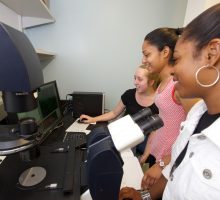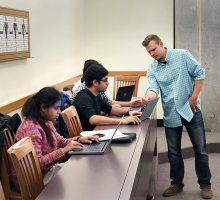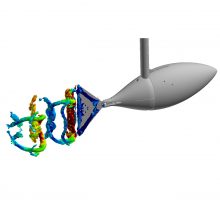BioInspired Syracuse supports research into complex biological systems, developing and designing programmable smart materials to address global challenges in health, medicine and materials innovation. It is an Institute for Material and Living Systems, focusing on three key areas: smart materials, form and function, and development and disease. BioInspired involves faculty from life sciences, engineering, physics, and chemistry.
Materials Research Core
Materials Characterization Core Facility






